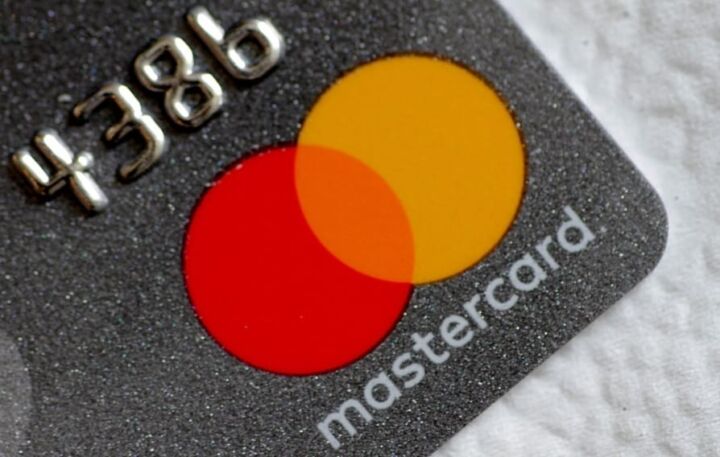Mastercard has entered into an expanded partnership with Smile ID, a leading pan-African identity verification company, to boost the development of secure and scalable digital identity solutions across the continent. The collaboration is aimed at addressing the growing need for trusted digital identity systems that can foster financial inclusion, combat fraud, and support Africa’s rapidly evolving digital economy.
The deal comes at a time when African nations are accelerating digital transformation efforts, with governments, regulators, and private sector stakeholders placing greater emphasis on identity infrastructure to drive economic growth. Mastercard, known globally for its role in advancing digital payments and financial security, views this partnership as a strategic step in deepening its presence in the digital ecosystem while empowering millions of Africans to participate fully in the global economy.

Smile ID, formerly known as Smile Identity, has built a reputation as one of the continent’s most reliable providers of identity verification solutions, enabling businesses across fintech, banking, ride-hailing, and e-commerce to authenticate users seamlessly. The company specializes in leveraging biometric data, artificial intelligence, and identity databases to confirm customer identities in compliance with Know Your Customer (KYC) and Anti-Money Laundering (AML) requirements.
Through this partnership, Mastercard and Smile ID will integrate their capabilities to create an expanded suite of digital identity tools tailored for African markets. This will enhance customer onboarding processes, strengthen fraud prevention, and ensure compliance with regulatory standards. The partnership is also expected to support efforts to bridge the gap for millions of Africans who remain outside formal identification systems, a key barrier to accessing financial services.
In a statement, Mastercard executives explained that the collaboration reflects the company’s broader strategy to create a trusted digital ecosystem where identity is a cornerstone. By combining Mastercard’s global experience and infrastructure with Smile ID’s local expertise and technology, the initiative is poised to deliver solutions that balance innovation with security.
Industry analysts say the Mastercard-Smile ID deal is particularly timely, as digital transactions in Africa are growing rapidly. According to recent market insights, Africa’s digital economy could exceed $180 billion by 2025, with payments, e-commerce, and digital services driving this expansion. However, one of the biggest obstacles to scaling these opportunities remains the lack of reliable digital identity systems that ensure trust between businesses and consumers.
Smile ID’s CEO emphasized that the partnership marks a significant step in providing African businesses with world-class identity tools that can help reduce fraud, lower costs, and unlock new opportunities for growth. He noted that identity verification is no longer just a regulatory requirement but also a business enabler that builds trust with customers and facilitates faster adoption of digital services.
For Mastercard, the move underscores its ongoing investments in Africa, where it has been rolling out financial technology initiatives, collaborating with banks, mobile network operators, and governments to promote digital inclusion. The company has committed resources toward advancing biometric solutions, cybersecurity, and open banking frameworks that are critical to Africa’s digital future.
The partnership also aligns with broader global conversations on digital identity, with institutions such as the World Bank advocating for stronger identity frameworks to achieve inclusive economic growth. In Africa, where many individuals lack official identification, digital identity platforms are seen as vital in enabling access to healthcare, education, social welfare, and cross-border services.
With Mastercard’s global credibility and Smile ID’s African-rooted expertise, the collaboration is expected to bring immediate benefits to key sectors such as fintech, online lending, e-commerce, and government services. For example, fintech startups can now streamline customer onboarding while reducing fraud risks, while governments can improve delivery of social benefits by ensuring payments are directed to the right beneficiaries.
The rise of artificial intelligence and biometric verification also means that identity systems must evolve to counter new forms of digital fraud. This partnership addresses that concern by integrating advanced fraud detection mechanisms into identity verification processes, ensuring users remain protected in an increasingly digital-first environment.
Observers have noted that this partnership could accelerate the adoption of digital identity solutions beyond financial services. Industries such as telecommunications, ride-hailing, logistics, and healthcare stand to benefit from secure and efficient identity systems that improve service delivery while safeguarding data privacy.
As Africa works toward harmonizing digital identity standards across borders, the Mastercard-Smile ID initiative is also positioned to play a role in cross-border trade and mobility. By creating systems that can be recognized and trusted across multiple jurisdictions, the partnership supports the African Continental Free Trade Area (AfCFTA) goals of boosting regional integration and economic cooperation.
The collaboration is expected to deepen further with investments in infrastructure, research, and localized solutions tailored to Africa’s diverse regulatory and cultural environments. Both companies have pledged to work closely with regulators and policymakers to ensure that the digital identity solutions developed are not only secure but also inclusive, transparent, and adaptable to national frameworks.
Ultimately, Mastercard’s partnership with Smile ID demonstrates a shared vision of using technology to build a safer and more inclusive digital economy. By tackling the challenges of identity verification, the collaboration is setting the stage for greater trust, efficiency, and growth in Africa’s digital financial services sector.
As the demand for digital services continues to expand, the success of this partnership could shape the future of identity systems in Africa and establish a model that other regions of the world can emulate.
Support InfoStride News' Credible Journalism: Only credible journalism can guarantee a fair, accountable and transparent society, including democracy and government. It involves a lot of efforts and money. We need your support. Click here to Donate
